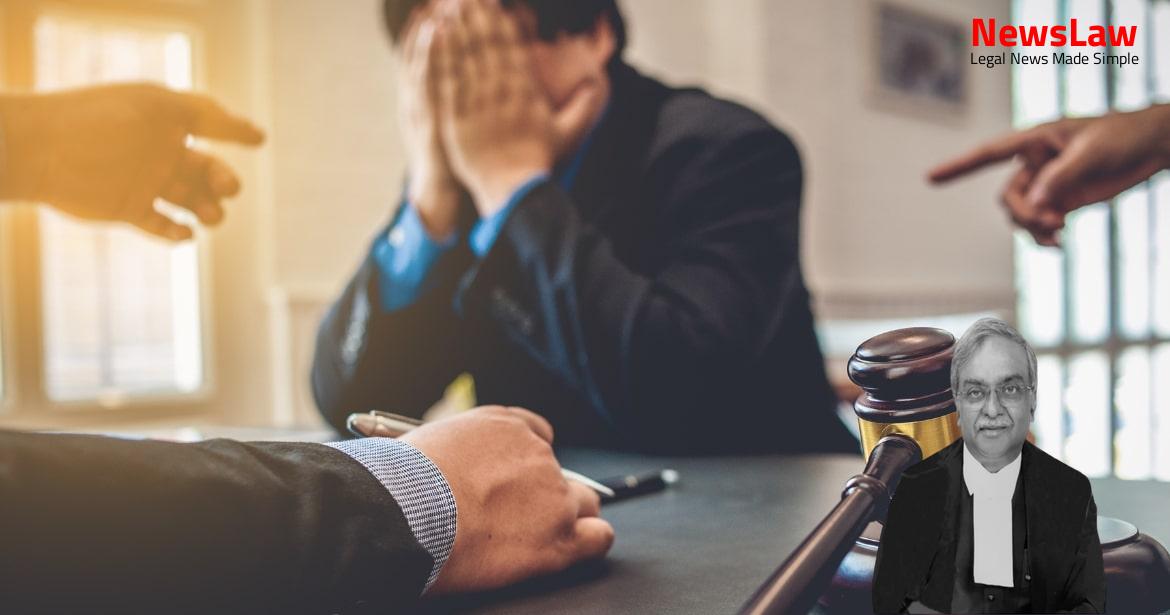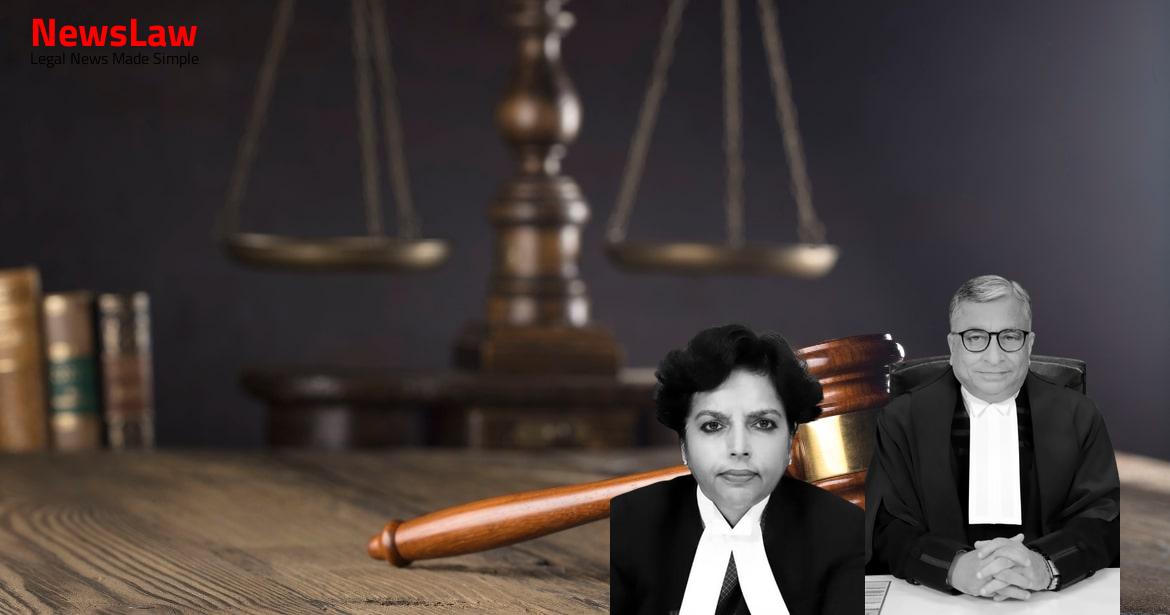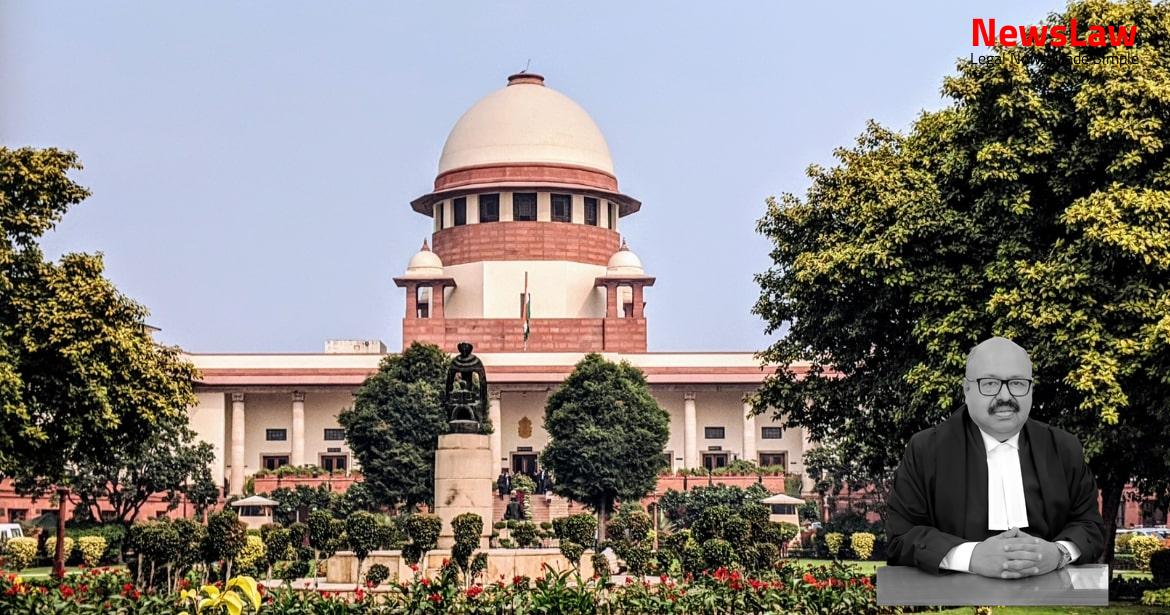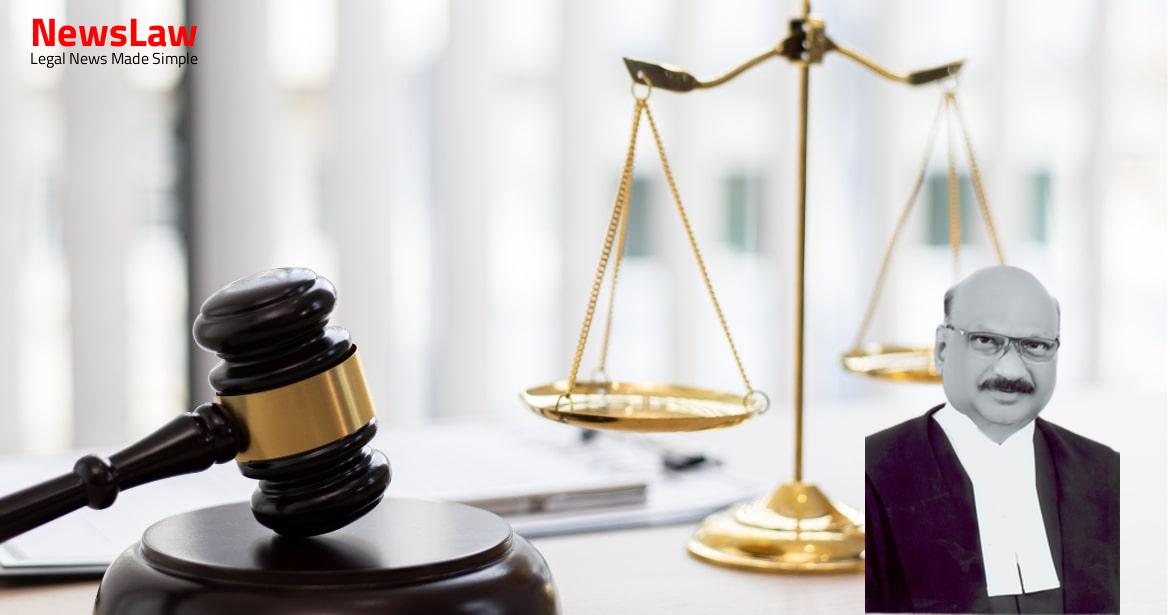The court’s recent legal analysis delves into the intricate balance between addressing private grievances and safeguarding public interests. In a case where both parties accuse each other of financial impropriety in job placements, the court’s nuanced examination raises broader questions on how to discern genuine claims from spurious ones. The judgement in this case will have implications beyond the immediate contours of the case itself, highlighting the significance of ensuring state resources are utilized for matters of true societal import.
Facts
- The appellant filed a complaint on 06.04.2021 alleging that respondent no.6 allured him with promises of securing a job for his brother in exchange for a substantial amount.
- An enquiry was conducted where both parties failed to produce relevant documents and call records.
- The appellant paid Rs.80,000 in cash to respondent no.6, but no job was secured.
- The Station House Officer directed the registration of an FIR after detailed enquiries and statements from both parties.
- Both parties accused each other of extracting money for job placements of their relatives.
- The appellant was accused of taking Rs.4 lakhs for securing a job for respondent no.6’s daughter.
- Respondent no.6 threatened the appellant with false implications when he requested a refund.
- An additional demand of about Rs.20,000 was made by respondent no.6.
Also Read: Reversal of Acquittal: High Court Convicts Accused in Murder Case
Issue
- The broader question of balancing interests between addressing private grievances and safeguarding public interests is raised.
- The court needs to consider how to address unscrupulous private grievances while safeguarding public interests.
- The judgement in this case will have implications beyond the immediate contours of the case itself.
Also Read: Modifying Sentence for Delayed Trial: A Legal Analysis
Arguments
- Learned counsel for the appellant argued that a prior complaint by the appellant resulted in an enquiry where similar allegations were made by both parties but found unsubstantiated.
- The lodging of the FIR about a year after this enquiry is alleged to be mala fide and an abuse of the legal process.
- The appellant’s counsel claimed that the impugned FIR is a retaliatory move to prevent the appellant from reclaiming the amount paid to respondent no.6.
- There is no justification for scuttling the investigation.
- The appellant deceitfully induced a clear case of cheating.
- The alleged transaction in the FIR is from April 2019, but the FIR was lodged in July 2022 after a significant delay, posing a question on its validity.
- The State of Chhattisgarh and the respondents’ counsel argue that a cognizable offense is disclosed in the FIR, supporting the continuation of the investigation.
- If the police report under section 173(2) of the Criminal Procedure Code finds the appellant prima facie guilty based on collected evidence, the appellant can challenge the charge sheet or seek discharge during charge framing.
- Allowing the investigation to proceed is crucial to prevent the deprivation of respondent no. 6’s money and ensure accountability for any offense committed by the appellant.
Also Read: Modification of Sentence Imposed in Criminal Case
Analysis
- Unlawful contract for securing government or private sector job
- Shared culpability between parties revealed in inquiry
- Inordinate delay in lodging FIR raises doubts on authenticity of claims
- Mala fide intentions of recovering money through coercion and threat of criminal proceedings
- Police cautioned to exercise vigilance in disputes involving unethical transactions
- Counter-accusations of financial impropriety and broken promises divert police resources from consequential matters
- Recommendation for closing the complaint due to unexplained delay
- Criminal prosecution should not be allowed to continue if the object is not for criminal prosecution but for recovery of money under coercion.
- Criminal prosecution should serve the purpose of punishing the offender for the offense committed.
- It is essential to discern the genuine from the spurious to ensure state resources are utilized for matters of true societal import.
Decision
- Allowance of the appeal
- Setting aside the impugned order passed by the High Court
- Quashing of the entire proceedings arising from FIR 248 of 2022
Case Title: DEEPAK KUMAR SHRIVAS Vs. STATE OF CHHATTISGARH (2024 INSC 117)
Case Number: Crl.A. No.-001007-001007 / 2024



